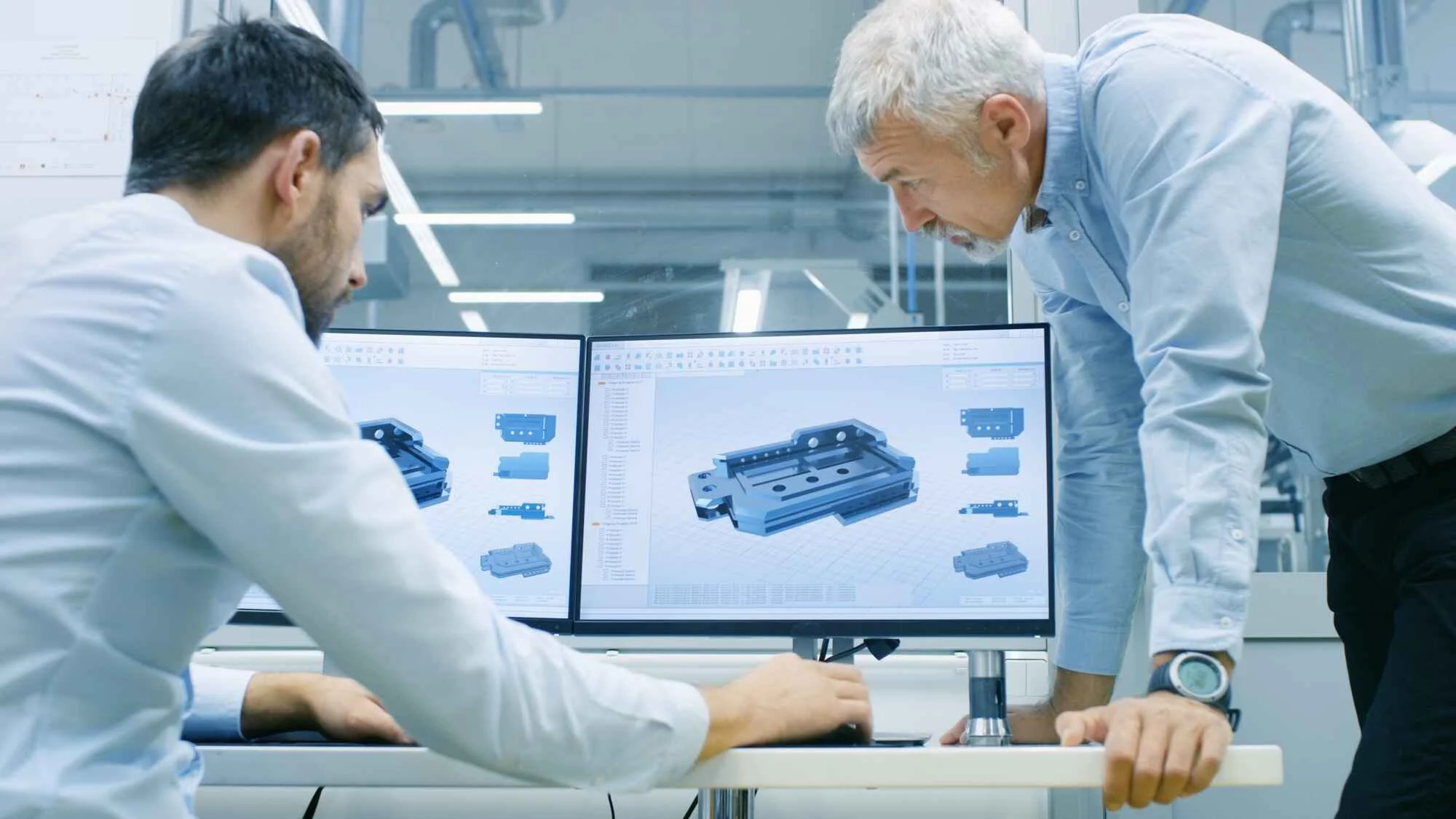
PE-Certified Projects
Services & Solutions
Look to Springfield Tool & Die for PE-Certification
There are multiple reasons for having a project certified by a professional engineer. Ensuring compliance is the most obvious. But PE certification confers a host of other benefits, many of which can truly make a positive impact to your business in both the short and the long term.
The Many Benefits of PE Certification
From quality assurance to design optimization, to concerns about safety and liability issues, and even professional reputation, producing PE-certified equipment brings many benefits, including:
Ensure Safety and Compliance with PE Certification
Lift fixtures and material handling equipment often involve heavy loads, moving parts, and worker interaction. A PE-certified design verifies that the fixture meets safety standards (e.g., OSHA, ASME, or ANSI) and local regulations, reducing the risk of accidents, injuries, or equipment failure.
A PE certification stamp confirms the design has been evaluated for structural integrity, load capacity, and stability, protecting workers and the shop from liability should something go wrong.
PE-Certified to Meet Specs and Requirements
In demanding industries like automotive, aerospace, and others, specifications can be intense and tolerances tight. By requiring a PE certification stamp on their custom fixtures, companies in these sectors can ensure compliance with contractual and regulatory requirements.
Additionally, many jurisdictions have their own requirements for PE certification on production and material handling equipment, to conform to their own building codes and workplace safety laws.
PE Certification Enhances Credibility
A PE certification stamp is a sign that your shop delivers high-quality, professionally vetted designs. This is a powerful differentiator from competitors and helps build the kind of reputation that opens doors to larger contracts with a more established clientele.
Improve Design Quality and Efficiency
In addition to uncovering potential design flaws, the PE certification review process can identify missed opportunities for process optimization or product improvement. For example, a PE might refine a design to increase lift capacity or to reduce material costs without compromising performance.
Statistically, PE-certified designs are less likely to require costly revisions during production, or retooling after deployment.
When It Makes Sense to Offer PE Certification
Springfield Tool & Die can offer PE certification on anything we build. Because it is an added cost, it often doesn’t make sense on simple, low-risk fixtures. Here are some of the typical contexts for offering PE certification:
Custom Fixtures: Lift and material handling fixtures are often custom-designed for specific tasks. PE certification ensures the design is tailored to the unique load, stress, and operational requirements of the application.
Shop Environment: Tool and die shops operate in high-precision, high-risk environments. A PE-certified design accounts for multiple factors helping to ensure durability and safety.
Client/Legal Requirements: Clients and jurisdictions usually have their own guidelines and requirements regarding PE certification. Additionally, any client commissioning fixtures for heavy loads, critical components, or operating in hazardous conditions is advised to obtain PE certification.






